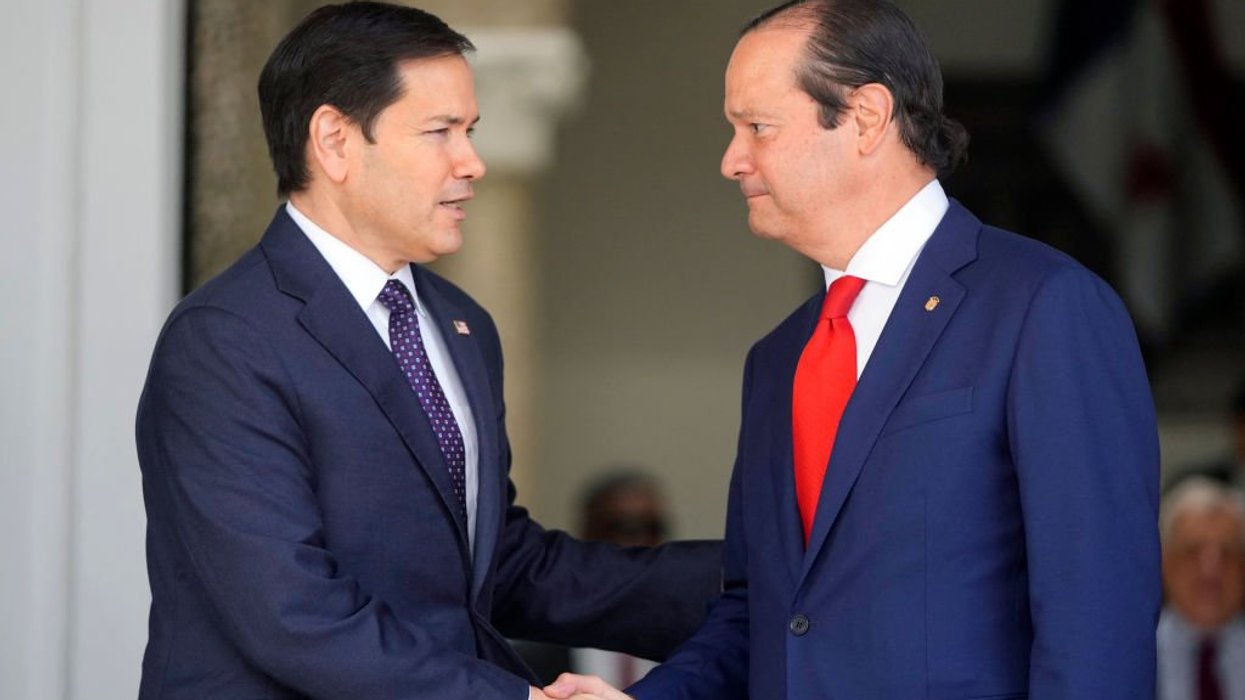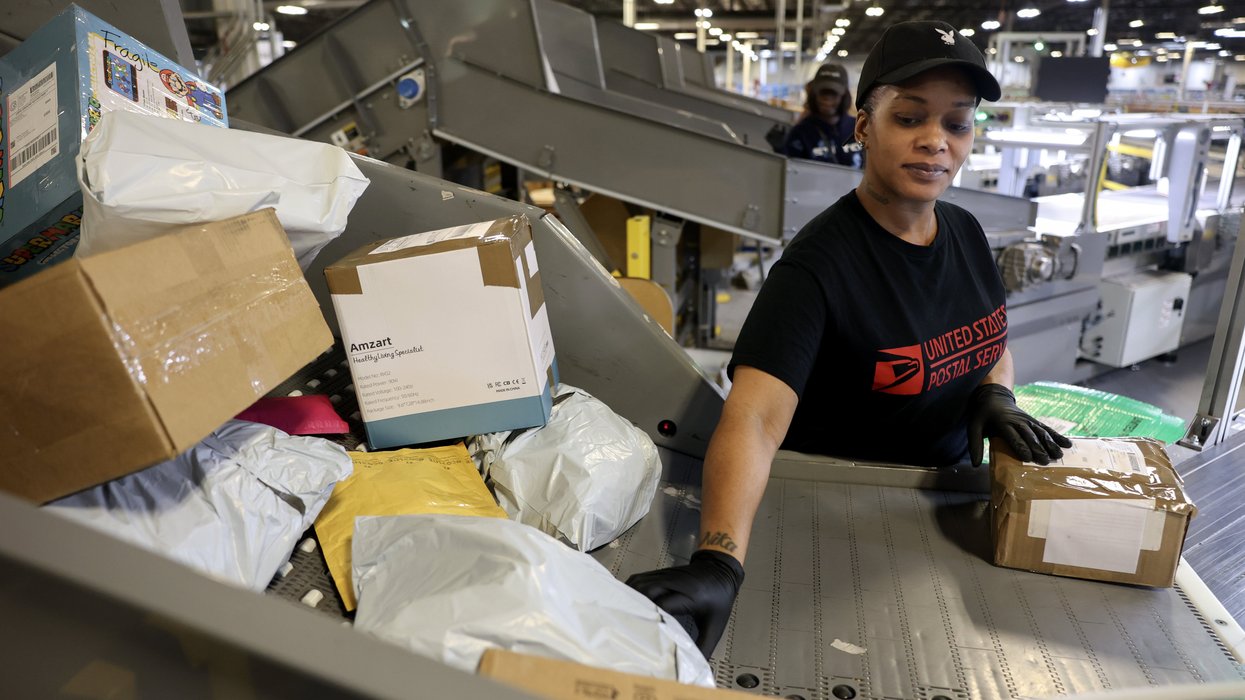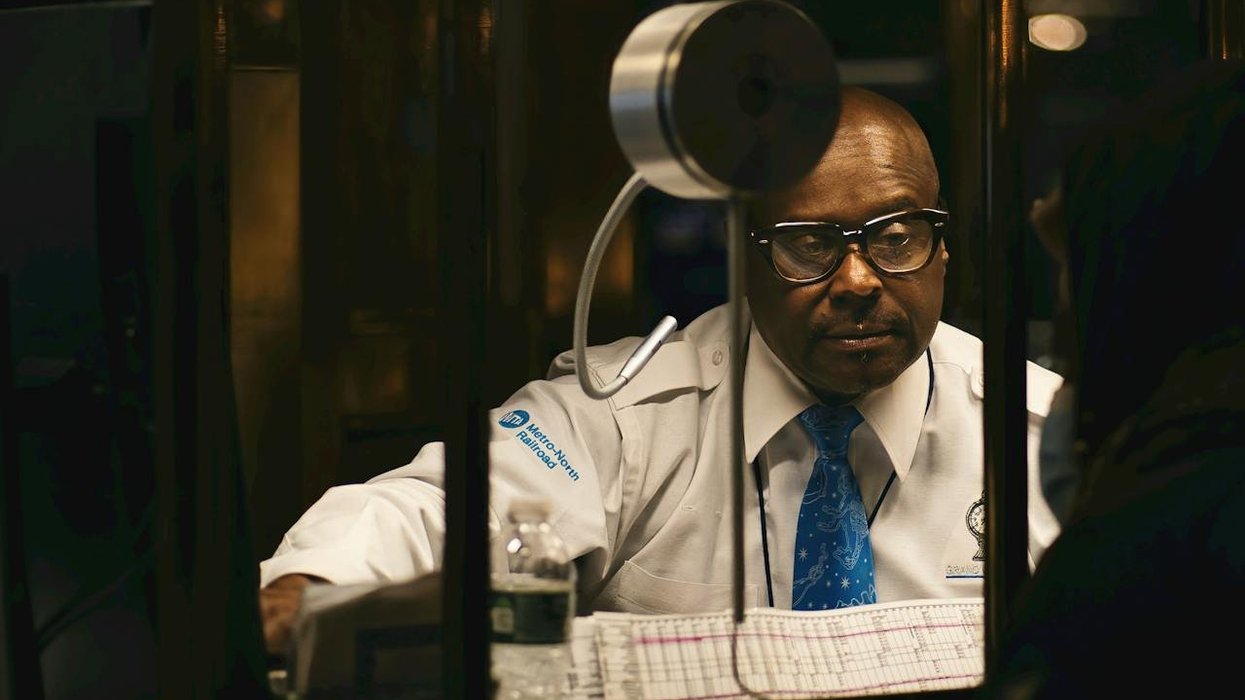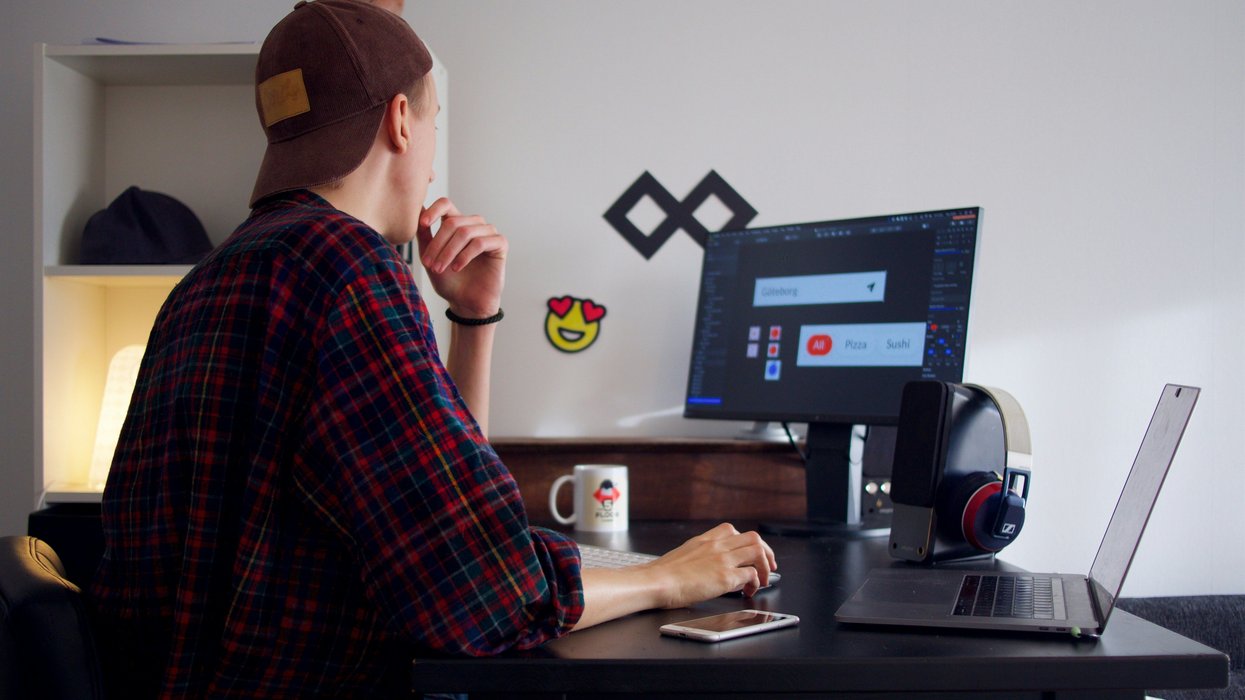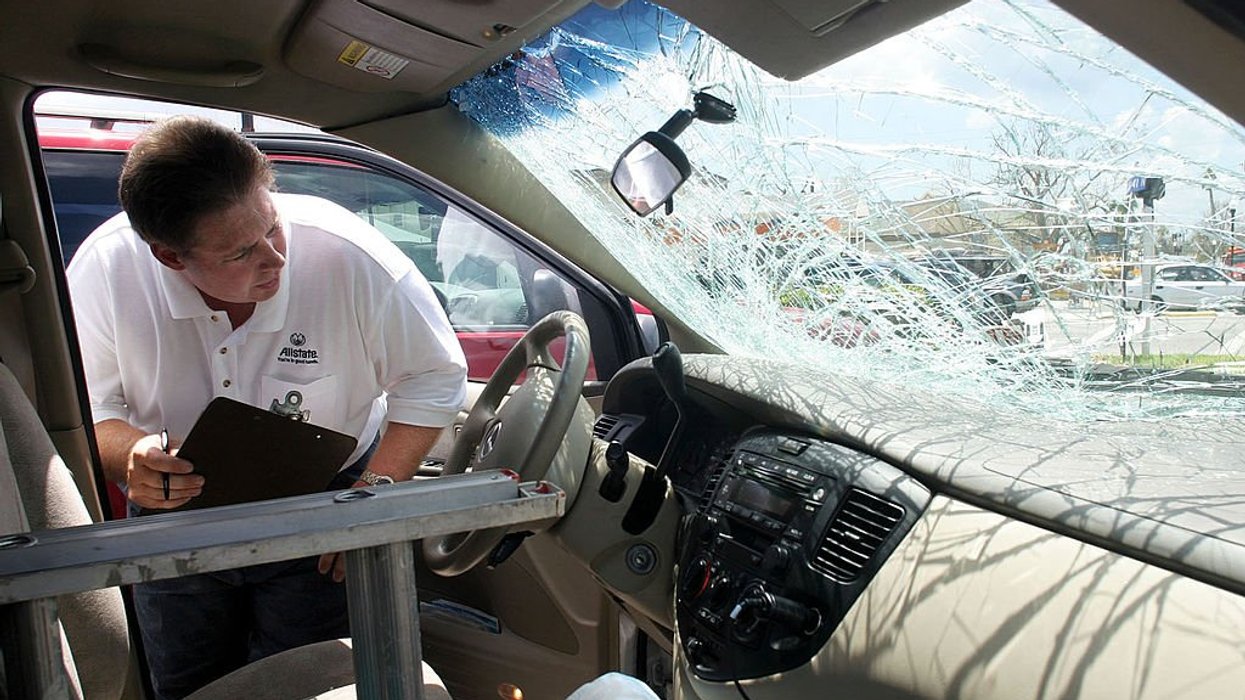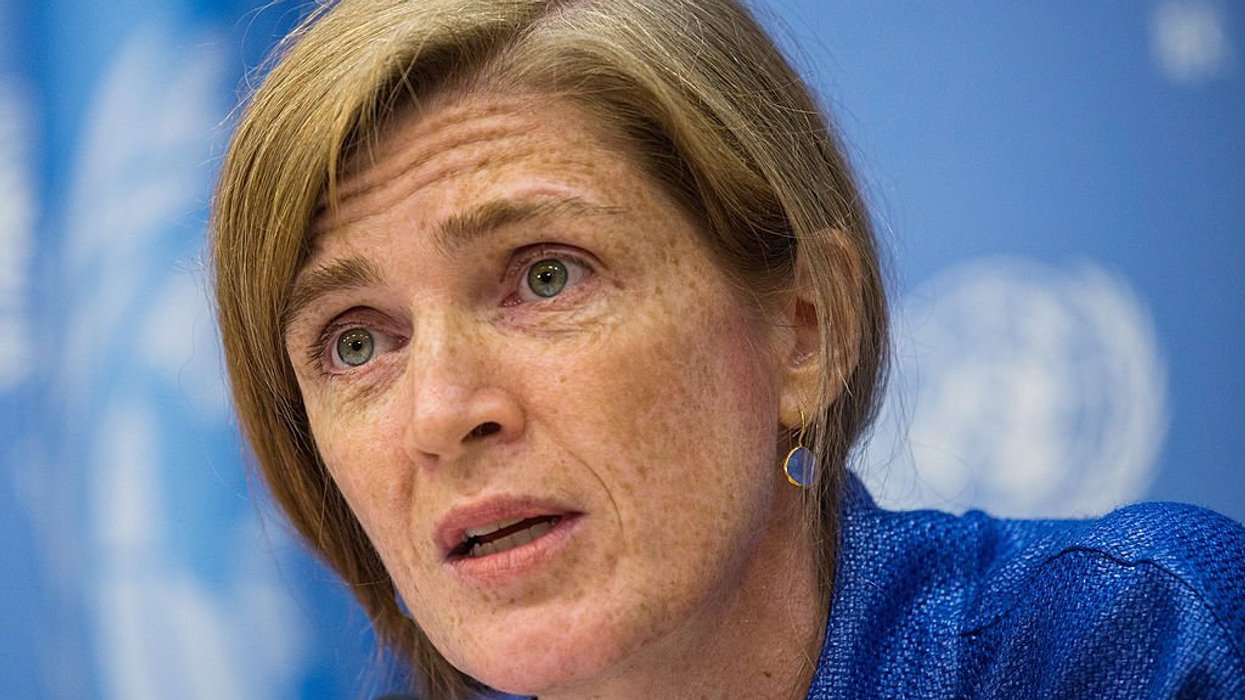GLENN: Lauren Cooley is in town. Lauren is somebody who has been listening to this show for a long time. You were in high school when you started listening to this show?
LAUREN: Yep. High school.
GLENN: Did your parents serve any time for that cruelty?
LAUREN: No. Not at all. I was watching you on TV when my parent was watching one thing, and I was in the other room watching Glenn Beck on TV.
GLENN: Wow. You were a weird kid.
LAUREN: Yeah, that's true. I'm not gonna deny it.
GLENN: And when you were in high school, you read common sense.
LAUREN: Yeah, it's the book that made me think not just Republican but conservative too. Probably conservative first and Republican second.
GLENN: And why was that? Do you know?
LAUREN: I think it cut through all the talking points -- no upon intended, here's some common sense that everyone is talking about, and it explained things so simply that it wasn't, like, you have to vote for this party or that party. You have to tow the party line. It was these are things that are really going to help our country, they make sense. They are things that have been around. It's not brand new. Why aren't we talking about these things and thinking about these things? For me, it clicked and made sense.
GLENN: Wow. How old were you at the time?
LAUREN: I was 16 or 17.
GLENN: How. How much would you love to have your 16 or 17-year-old reading on their own something like common sense and be, like, I'm thinking about these big issues. That's remarkable.
So then you live in Florida.
LAUREN: I do.
GLENN: And you're doing a speaking tour now for college students. Tell me about it.
LAUREN: During the election, I was helping students get out the vote and doing a big voter registration program and now the election's over, all right. What do we do on campus; right? So all of these students came to me and said, hey, you gave me such great direction during the election but now what? So that's the premise of this speaking tour called make campus great again.
JEFFY: They're allowing me on campuses?
LAUREN: Some campuses where I could get away with it. Last night we heard screaming out the door, and we thought it was protesters. It wasn't. I thought that would give me street credit. But going to college campuses saying we've been playing defense, we around for some leftist group on campus to say we hate the American flag. Let's get rid of it and then say, oh, we love the flag. Why don't we go on offense for these America first policies that we care about instead of waiting for some kind of controversy on campus to happen. Why don't we start pushing our agenda going to the student government and saying, hey, we receive taxpayer dollars. We love our country. We want to always prominently display the American flag and get something passed as resolution on the front-end that way we're not always playing defense. Multiple things but that's a good example.
GLENN: When you say multiple things, because you've said a couple of things that put a red flag up in my head that that's America first that you have to be careful with America first. It's our principles first. Where do you stand on free speech on campus and safe spaces? And where do people your age stand on that?
LAUREN: Right so to answer America first, when I always tell people is obviously when it comes to principles, everybody has equal intrinsic value; right? But when you come to a nation state, that's where you have to start deciding with the social contract what is the role of that organization? So in that sense, that's what we're talking about America first policy.
GLENN: Good. Okay. All right.
LAUREN: But free speech on college campus is such a difficult topic because it's not that the administration wants to shut down other ideas, although a lot of times it is, they just like to have control, and they don't like any type of organized chaos. So for college students on most campuses, and this is even worse on private campuses, there's something called a free speech zone. You can only articulate, you know, controversial values in this small little area. So what I've actually encouraged students to do on this tour is go out and purposely revoke their administration that they're not allowed to be talking about some issue outside of the free speech zone. Purposefully go and stand just outside of the free speech zone with a sign that says I'm not in the free speech zone.
I have the first amendment. You know, whatever it might be. And get that on film, get documentation so that they can actually go and use it either with the student government or trustees or use it for media or even for a legal case and say here's a documented example. We've actually shown the administration is trampling on our free speech rights and then be able to make policy changes.
GLENN: I would think that college students would be the first to say don't trample on my right to speak in any direction. I mean, the reason we have tenure is that -- is so that 25 years ago a professor could say, you know, global warming's going to happen, and we're all going to die. We have to ban oil because it was controversial and needed to make sure he could keep his job. Now we have to be able to have tenure so some professor could say, you know, this global warming stuff is nothing but crap. On a University campus, it should be the place where you are the most uncomfortable.
LAUREN: Yeah, absolutely. I think learning is exploring new ideas, things that are uncomfortable. And what I've seen at least when I was an undergrad about four or five years ago, free speech zones, trigger warnings, they weren't really that big of a thing. It's really been in the last five years or so when the left has become so extreme.
GLENN: Who's driving that? Is it the students? Is it the faculty?
LAUREN: I think it's our culture. I think the culture comes from a lot of times these AstroTurf protests. That gets into the culture, celebrities promote it, different student groups on campus that are left wing have different organizations that are funded maybe by George Soros. Giving them talking points and activism projects. And then that starts creating where it looks like it's natural and coming from the students.
GLENN: And do the students for the most part left and right agree with safe zones?
LAUREN: No, absolutely not. And that's what I say of getting at. About five years ago, people didn't care one way or the other. But I think the farther left our culture gets, that's what people are going to see on college campuses is that it used to be counter culture to be liberal. But now we see in Hollywood, in our government for the past eight years, our culture, the normal culture is this liberal progressive be nice, be politically correct, you can only use your free speech in a safe little box where it's away from everybody else. Young people like to be radical. They look to be counter culture, and I think that's where we're seeing conservative values come back. This push against political correctness, a push against trigger warnings with, and it's neat to see polling and trending with younger generations even younger than millennials and this new wave of college students now as opposed to five years ago that we're voting for President Obama. There's a push back, and I'm really excited about seeing that on campus, and that's kind of what my tour's about is these practical ways, these actual tactical steps to make a difference and push back against these things.
GLENN: Lauren Cooley. LaurenCooley.com is her web address. You can find out more about her and what she's doing. Nice to meet you.
LAUREN: Thank you for having me.

